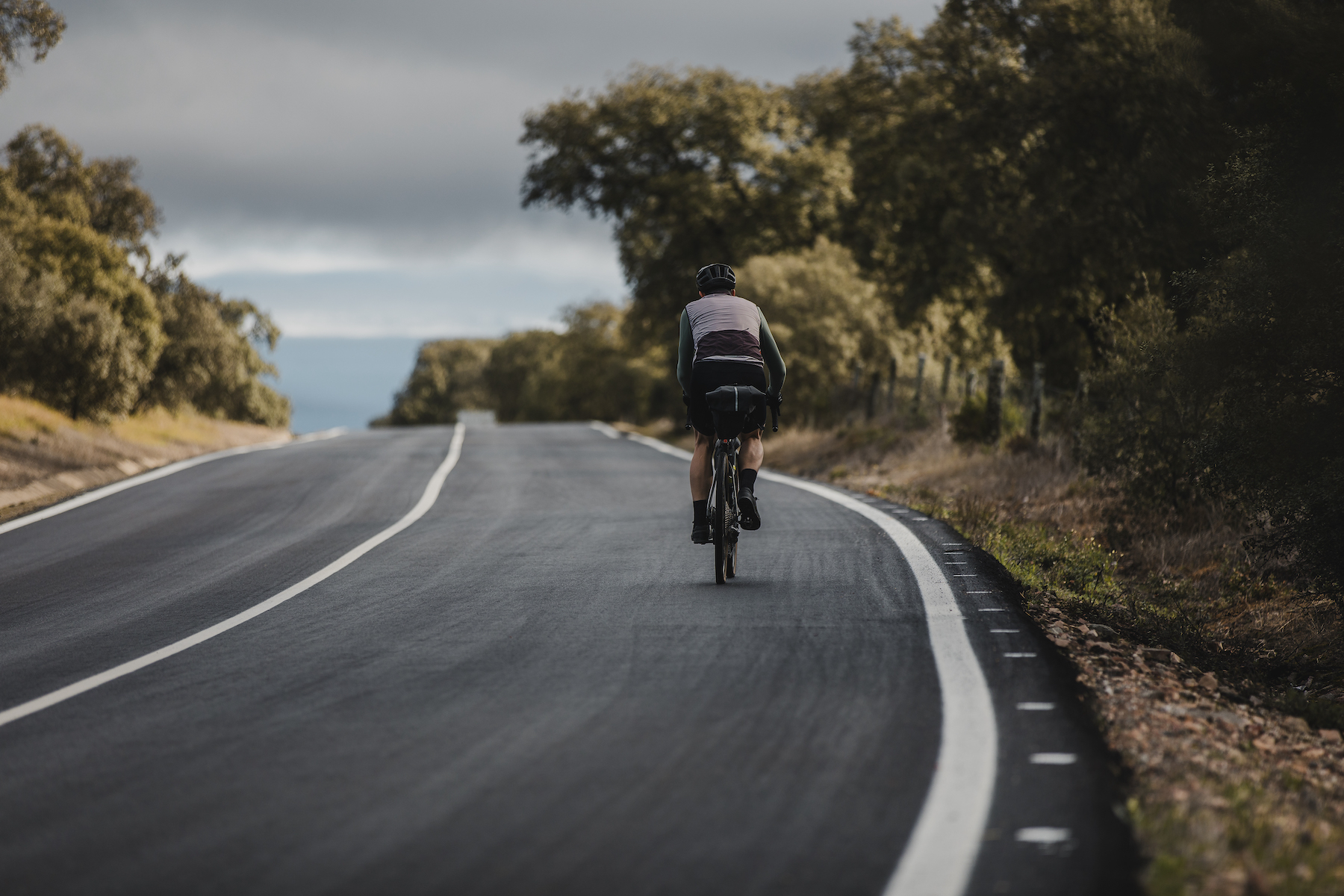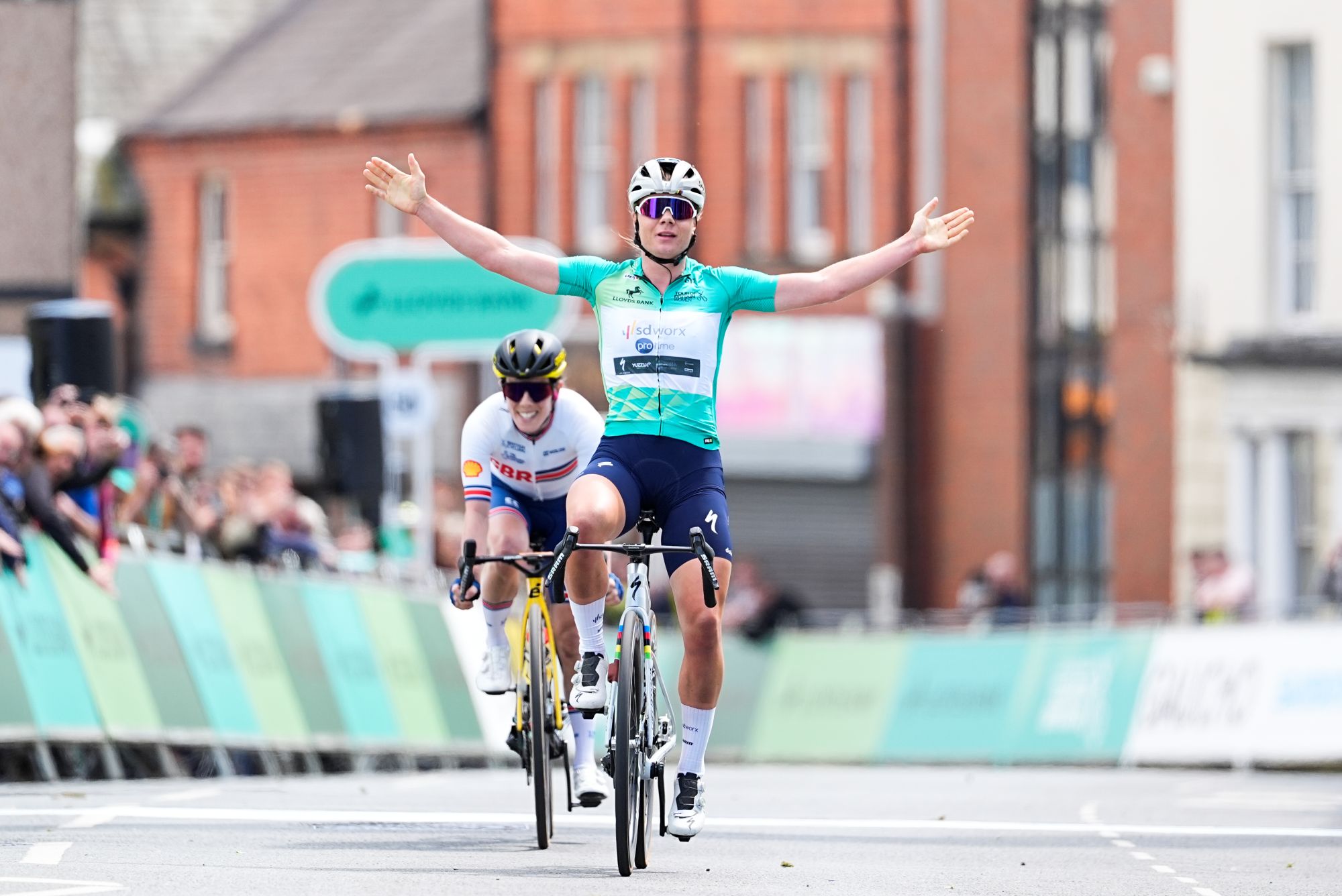'They come to my country and kill kids': UCI's decision to allow Russian riders at World Championships draws passionate reaction
There has been a mixed response to the UCI's decision to allow Russian and Belarusian riders the opportunity to return to the international stage.


The UCI’s decision to open the door to allowing Russian and Belarusian athletes to once again compete in international events, such as the World Championships, has drawn a strong condemnation from one of Ukraine’s leading figures within cycling.
On February 3, cycling’s governing body amended its rules to reflect a recent decision by the International Olympic Committee (IOC) that stated athletes from Russia and Belarus should no longer be excluded from competing in international arenas if they adhere to certain measures.
In a statement, the UCI defined their “strict conditions” for a “possible participation” could only be envisaged if “athletes would compete as ‘neutral athletes’ and would not represent their state or any other organisation in their country”.
Moreover, “only athletes who fully respect the Olympic Charter would be able to participate”, the UCI went on, explaining that athletes must not have supported Russia's ongoing invasion of Ukraine, and that “verification will be carried out for each athlete entered”.
The news means that Bora-Hansgrohe’s Alexsandr Vlasov and Israel-Premier Tech Roland’s Tamara Dronova-Balabolina are likely to be able to compete in this year’s World and European Championships if they wish to.
Except for an Instagram post last March in which he wrote “I, like a lot of Russians, just want peace…I hope that it will stop as soon as possible”, Vlasov has kept relatively quiet on the ongoing conflict.
Speaking to Cycling Weekly at the current Volta a Valenciana, Vlasov was unaware of the new rule change, commenting that “I didn’t see it. But if it’s better, why not?
Get The Leadout Newsletter
The latest race content, interviews, features, reviews and expert buying guides, direct to your inbox!
“For me it’s a pleasure to participate in the Olympic Games; for the rest [of the year] I race for Bora.”
Vlasov seemed reluctant to expand much further. “I race with the team for the most part of the year so I am happy to race with the Bora-Hansgrohe jersey,” he added.
However, Yaroslav Popovych, one of Ukraine’s best riders this century and a current sports director at Trek-Segafredo, was critical of the anticipated rule change when speaking to Cycling Weekly a week ago.
He said: “On one hand I understand [it]: I have Russian friends, have been teammates with Russians, even roommates. I understand [if they criticise the war they can] lose their job, they need money for their family and everything. But they need to pay for what they do. It’s not fair.
“They come to my country, kill people, kill kids, [and] destroy cities. For me, no. They don’t need to compete.
“If they change their sporting nationality, it’s OK, [but] they need to be really clear and hope they have not supported the war. But some people, some riders, apparently support the war and that’s not OK.”
Meanwhile, Renat Khamidulin, the former general manager of the Gazprom-RusVelo team that was shut down last spring following the UCI’s decision to ban Russian and Belarusian teams, backed the proposed change when speaking earlier this week.
“Speaking about that, that directly contradicts the Olympic Charter, but now we see that the governing bodies and [French president Emmanuel] Macron and [IOC president] Thomas Bach are speaking about bringing back Russian athletes,” Khamidulin said.
“When you think about the Olympic Games you can understand how the event itself is really being hurt. By not having athletes from Russia means the level of competitiveness is less and there are a lot of reasons why it is hurting the sport itself.”

Thank you for reading 20 articles this month* Join now for unlimited access
Enjoy your first month for just £1 / $1 / €1
*Read 5 free articles per month without a subscription

Join now for unlimited access
Try first month for just £1 / $1 / €1
A freelance sports journalist and podcaster, you'll mostly find Chris's byline attached to news scoops, profile interviews and long reads across a variety of different publications. He has been writing regularly for Cycling Weekly since 2013. In 2024 he released a seven-part podcast documentary, Ghost in the Machine, about motor doping in cycling.
Previously a ski, hiking and cycling guide in the Canadian Rockies and Spanish Pyrenees, he almost certainly holds the record for the most number of interviews conducted from snowy mountains. He lives in Valencia, Spain.
-
 'This is the marriage venue, no?': how one rider ran the whole gamut of hallucinations in a single race
'This is the marriage venue, no?': how one rider ran the whole gamut of hallucinations in a single raceKabir Rachure's first RAAM was a crazy experience in more ways than one, he tells Cycling Weekly's Going Long podcast
By James Shrubsall
-
 Full Tour of Britain Women route announced, taking place from North Yorkshire to Glasgow
Full Tour of Britain Women route announced, taking place from North Yorkshire to GlasgowBritish Cycling's Women's WorldTour four-stage race will take place in northern England and Scotland
By Tom Thewlis